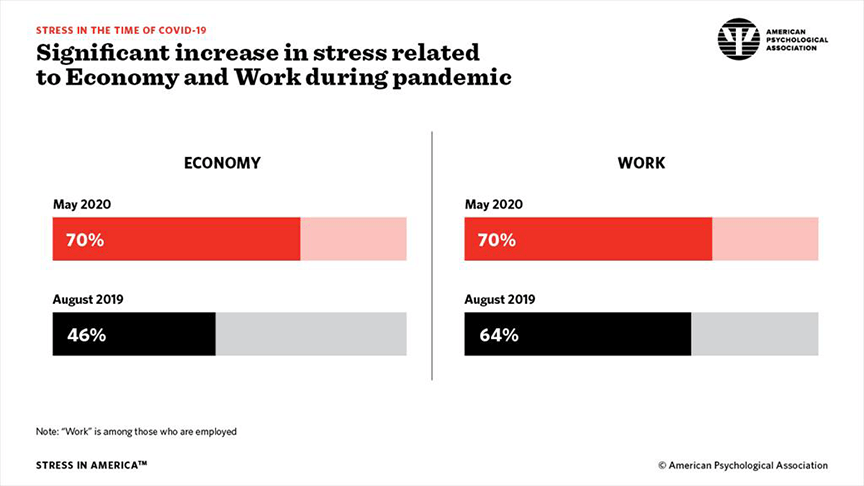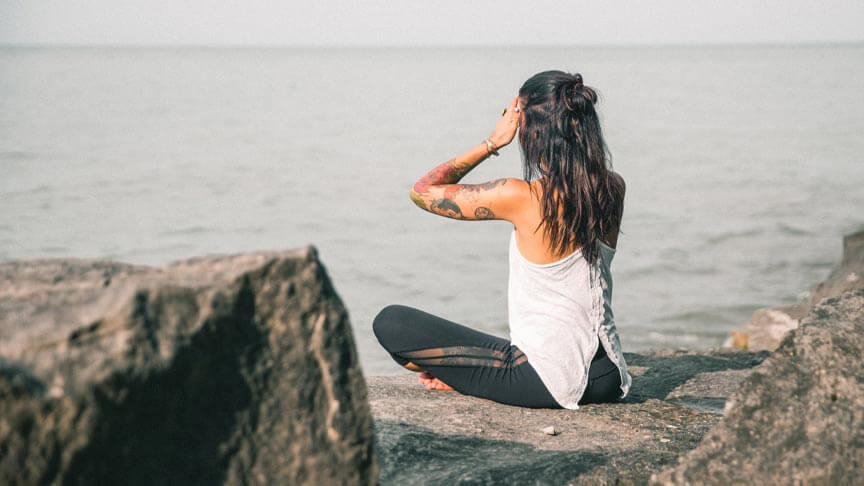For most of us, childhood was a time of wonder, the future a place of possibility, a far off and foreign land where all our dreams come true. However, as the years rolled by and the heavy burden of responsibility squatted upon our shoulders, the future morphed. No longer was tomorrow a place of refuge. Rather, it was the place we ran from, a place filled with uncertainty, where all the surety of the present disintegrated into the amorphous mass of possibilities. Not the possibilities of what we could do, but what could be done to us.
Have you ever lain awake at night, or struggled through the day, drowning in the endless stream of questions? Will tomorrow go ok? Will I get that job? Will my business survive? How can I pay my rent? Does she love me? What should I do? Will I be ok?
Congratulations, you’re a human being.
It is perfectly rational that a lack of knowledge of the future should create anxiousness. Indeed, in our species’ early days, it kept us alive. Ever vigilant for the dangers which might lurk around the corner, allowing us to plan ahead, and defend ourselves as necessary.
Yet, as with every part of the human body and psyche, even our sense of the future can become impaired. Uncertainty isn’t always our friend.
The Great Unknown
Science fiction writer H. P. Lovecraft captured our inner turmoil when he said, ‘The oldest and strongest emotion of mankind is fear, and the oldest and strongest kind of fear is fear of the unknown.’
Lovecraft dealt with the fear that comes from the vastness of the cosmos; but, for most of us, it’s not the big questions which irk us, but anxiety around the events of our day-to-day life. Some of us might go through life without a care in the world, just going with the flow. Or, at the other extreme, we might spend our lives constantly racked with worry about what could happen.
If that’s you, you aren’t alone (an estimated 31.1% of US adults will experience an anxiety disorder) – even if that small comfort doesn’t alleviate the worry. A survey by the American Psychiatric Association (APA), found that: more than one-third of Americans were stressed about unexpected expenses, nearly a third about economic uncertainty, and a full two-thirds were stressed about health-related issues. (Interestingly, changes to healthcare policy also provided a source of stress.)
However, in recent years, there has been an increasing trend of people feeling deep existential angst from the uncertainty surrounding significant issues, such as political upheaval, climate change, or the coronavirus.
Recent events have sparked a wave of uncertainty and anxiety amongst people. The APA found that 70% of Americans were worried about the economy and work during the pandemic. With one-third of American displaying signs of anxiety, depression or both during the pandemic, according to Pew Research, that figure rose to 55% for those experiencing financial difficulties.
Whatever the source of uncertainty, the subsequent response is the same.
Fearing the Future
So, why do some people breeze through life without a care in the world, while others find uncertainty unbearable?
The answer lies deep within our psyche.
Neuroticism is a personality trait defined by a tendency towards anxiety, self-doubt, depression, and shyness. One study found that those with high levels of neuroticism found uncertainty far more stressful than having to deal with a known negative outcome.
As the study’s author, Jacob Hirsch, said, ‘The idiom ‘the devil you know is better than the devil you don’t know’ perfectly characterizes the attitudes of highly neurotic people.’
The difficulty of dealing with not knowing is known as ‘intolerance of uncertainty’. It has been suggested as centrally important to several mental health conditions, with links to worry, depression, anxiety disorders, as well as attachment disorders in children. Children who feel more certainty and predictability in their parent’s ability to care for them are more likely to deal with their absence in a calm manner.
All of this seems obvious in retrospect. Highly anxious people are faced with a barrage of questions when dealing with an uncertain situation. A simple party creates fears around who will be present, how long it will last, what they will say or do.
While a person who is scared continuously of catching germs or of their family dying, might lapse into habitual handwashing or flicking the light-switch. The solution doesn’t have to make sense; it’s merely a compulsion to control. The same is often true of anorexics who control one of the few things they can, what they eat.
These people live in an overwhelming kaleidoscope of fear. Uncertainty hides around every corner.
Whereas, those less prone to anxiety, have a more laissez faire attitude. In the words of Doris Day, ‘Que Sera, Sera, Whatever will be, will be. The future’s not ours to see.’
How to Cope with Uncertainty (Some Tips and Strategies)
There is no need to feel hopeless because your struggle with uncertainty has a biological basis. We’re not computers. We can change our lives. Here are some tips for dealing with uncertainty.
1) Make a Plan
You don’t have to let an unknown situation control you. Instead, make a plan to take hold of the event and bring it under your control. It doesn’t have to be exact; it can even be more of a guideline. But once you’ve addressed the issue, thought about it, and come up with a few solutions, the uncertainty and anxiety will be alleviated.
For instance, if you’re going to a party. Plan who you’re going to go with. Jot down a couple of things to talk about. Decide what you’re going to wear.
But be flexible. Your plan is your fallback if things don’t work out. Be prepared to try something new. As your confidence grows, uncertainty will dissipate. You’ll simply know what you’re doing.
2) Meditate
Meditation or mindfulness has numerous benefits for your mental health and is vital in dealing with uncertainty. It helps center yourself, creating an internal feeling of calmness and serenity. So far, meditation has been shown to reduce stress, control anxiety, decrease depression, improve self-awareness, and can even improve your attention span.
Mediation can help you appreciate each moment as it arrives and passes, and will allow you to let go of the looming fear of the future.
3) Think Positive
Ok, this one is easier said than done. Lots of self-help guides simply tell people to think positive. But there is a lot of truth to it, as a Buddhist monk – and paragon of calm – Shantideva said, ‘If the problem can be solved, why worry? If the problem cannot be solved, worrying will do you no good.’
Yet, how do we reach this positive frame of mind?
Well, start by reframing the situation. When considering the worst, ask yourself, what can you do to handle it. It may seem negative, but actually, it demonstrates a positive and proactive outlook. Nor should the uncertainty of the future be considered a bad thing, a world of total certainty is a prison, where every hour of the day is regimented. Uncertainty can be a chance for change and improvement. Don’t deny that which you fear, embrace it. You’ve got this far, haven’t you?
4) Don’t Watch So Much News
The news is designed to keep you anxious, and thus to keep you watching. If everything is ok, you can change the channel. If it’s not, your brain kicks into gear as if it were face-to-face with a sabretooth tiger, and your attention locks onto finding out as much about the current crisis as possible.
It’s important to keep abreast of current events, but don’t let them dictate your life. If you switched off the news for a week, would anything truly change? Try to limit your intake to a certain amount of time each day, and disable any updates on your phone.
5) Reflect Upon Your Life
As I said, you’ve got this far. You must be doing something right. Think about all the successes you’ve had, all the little wins, and the friends you made in the process. Pat yourself on the back. It’s easy to criticise and be hard on oneself – and no doubt that can be a great source of motivation – but without rewarding yourself at the end, what’s the point?
Reflection provides a moment to get some perspective. It puts the uncertainty of an event or trigger within a broader context. That thing you’re terrified of, it turns out you faced something similar before, and it was fine. Or maybe it wasn’t, what did you do wrong, how can you adapt? You can decide how you want to do this; it can be a walk in the park, during meditation, or via a daily journal.
Personally, I like to chat with friends or family. Their perspective helps add to my own and reminds me I’m not alone. There are also fantastic online communities for support, from forums to groups on Reddit.
Images by: Brodie Vissers, Pixabay




![How to incorporate a yoga practice at home [with Rose Barkley]](https://bloomwith.us/wp-content/uploads/2020/05/yoga-practice-at-home-rose-barkley-400x250.png)